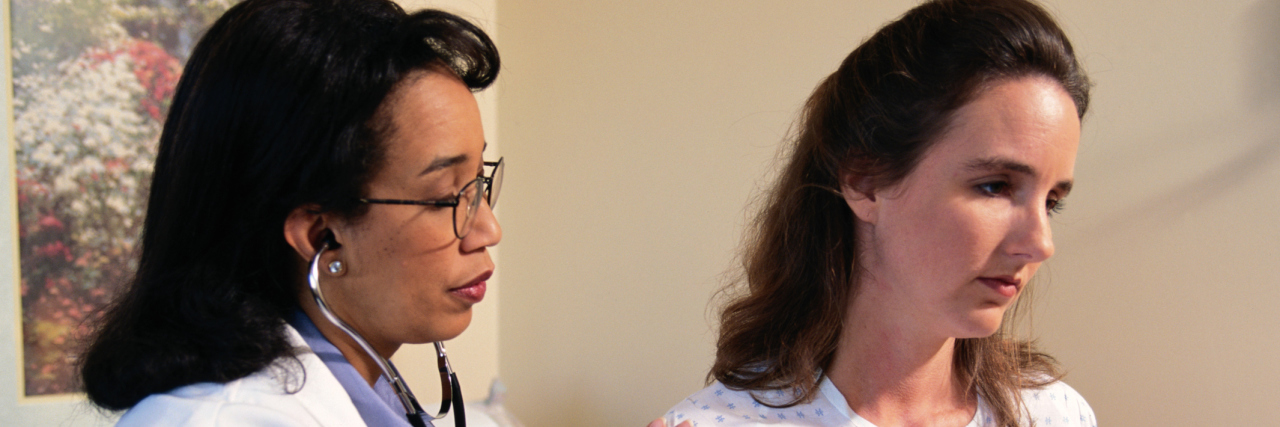To anyone in the healthcare profession that comes across someone with fibromyalgia,
Firstly, thank you – you work a thankless job, and don’t hear those words enough. I appreciate everything that you do, for me, for everyone else, in an overburdened and underfunded industry. You work a job with the intentions of making everyone better. It’s not always possible, as not everyone can be made better, and I’m sure it’s as frustrating for you as it is for us when you reach a wall and can’t do anything.
But, please know, your words matter. I’ve lost track of the times I’ve been reduced to tears in a doctor’s office. I know how high-stress it is for you, but it’s just as high-stress for me. On average I’ve likely waited four to six months for this appointment, waited, hoped, waited, hoped. I’ve sat at home, just wishing that this will be the appointment where the doctor has some form of treatment for me, some medication that will work, something – anything – that will make even the slightest difference.
Sadly, this is rarely the case. Instead, I’m told:
“There’s nothing we can do.”
“I’ve done all I can do.”
“We haven’t got a magic wand for you.”
Five words, six words, eight. That’s all it takes to destroy the hope that I’ve spent months building, to crush my spirit. If you look closely enough, you can even see the spark of hope flicker in my eyes, and watch it fade as the fire is extinguished.
I know you see a lot of patients, and I’m just another trust number, another set of symptoms, another appointment slot in your busy day. But to someone else, I am a daughter. To someone else, I am an aunty. I am a student, a writer, a friend. There is more to me than just my symptoms. See me as a whole, see me as a person, and help me be the person I am meant to be.
Fibromyalgia, and other invisible illnesses are tricky, I know – the simple fact they’re invisible makes them that much harder to work with. But the most important thing you can do is believe. Believe that it’s real. There are still so many doctors and medical professionals that believe fibromyalgia and myalgic encephalomyelitis/chronic fatigue syndrome aren’t real. If this is all in my head then I’m impressed about the power my subconscious has over my nerves and muscles.
The second most important thing is to be kind. There’s a time for tough love, and there are patients who will be ready for that. But most of us dealing with a chronic illness would rather be killed with kindness than with coldness. You have the ability to make us feel heard, understood and validated. Don’t underestimate how powerful that gift is.
All I’m asking, is that you don’t dismiss me. Please don’t get frustrated with me when I get upset. My emotions aren’t easy to control, especially not when I feel so disappointed. Do not ask me if I have had a mental health assessment, just because I cry easily. It is natural to be upset when something you were counting on has been taken away. I’m just asking that if you can’t help me, then help me find someone who can. Don’t just send me away. Don’t just send me back to the drawing board. Don’t make me start over again.
Getting treatment for a chronic illness is like climbing a mountain. And every time an appointment goes wrong, it’s like an avalanche, knocking us all the way down to the bottom, and leaving us a bit more battered than when we started out. There’s only so many times we can get up and try to reach the top, before we’re too weary to take even a single step.

